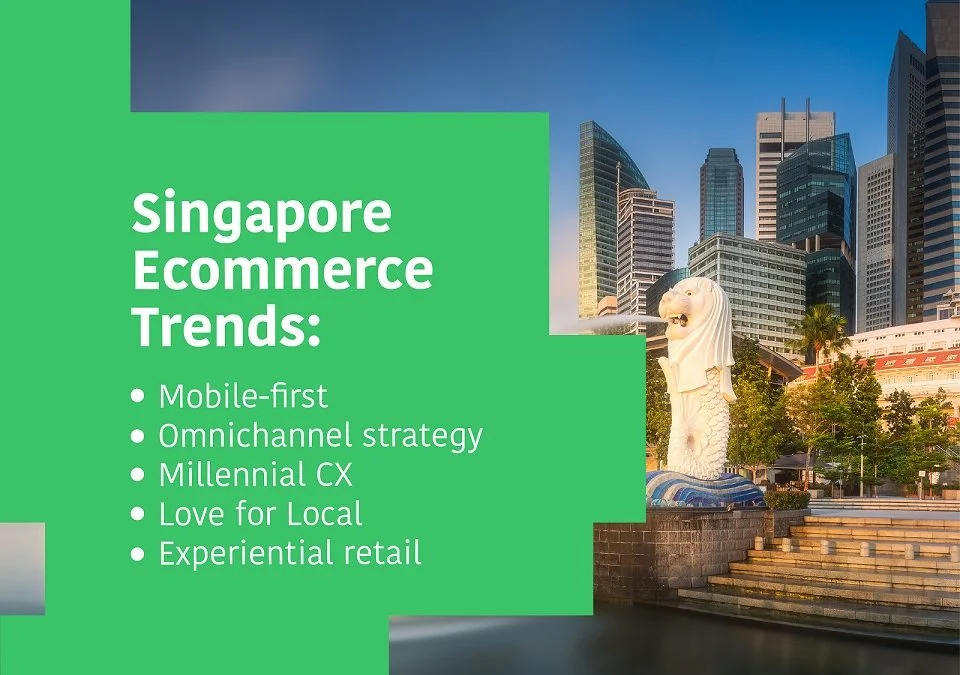- Design industry shaping loyalty programs
- Integrate easily and go live quicker
- Deliver hyper-personalized consumer experiences
Blue Rewards from Al Futtaim Group Shares Loyalty Success Stories and Evolution. Watch Podcast >
Capillary Announces 2nd Annual Captivate 2025 Summit: Transforming Loyalty Management with New AI Tech Read more >

Singapore has been hailed in the global community for the quick and effective steps taken to contain the spread of Covid-19. Apart from airport health checks, the country state carried out extensive testing of suspected cases; conducted rapid contact tracing of every confirmed case; confined infected contacts to their homes with strict monitoring and tracking until they recovered from the infection.
Unfortunately, the circuit breaker measures taken to contain the pandemic severely impacted Singapore’s retail sector – sales were down to 40% in April and 52% in May 2020< (compared to April-May 2019). This has been the steepest decline in Singapore’s retail sales since 1986 when the data was first recorded.
A poll conducted by Singapore Tenants United For Fairness revealed that around are “likely” or “very likely” to close down at least one store and lay-off staff in the next six months.
While lockdown restrictions were eased in June, sales didn’t see much of a revival, mostly due to safety & hygiene apprehensions and the absence of high-spending tourists. Unsurprisingly, retail outlets in prime areas like Jewel, Marina Bay Sands and VivoCity were among the worst hit.
The solace amidst this collective downward spiral is the 56% growth in sales for supermarkets/hypermarkets and a 9% sales spike for convenience stores and minimarts. Shares of Singapore’s third-largest supermarket chain Sheng Siong rose 39% and RedMart, the Lazada-owned online grocery service, registered 11X more unique visitors on a daily basis during the pandemic.
Grocery and hypermarkets aren’t the only sectors thriving in Singapore’s bleak, post-COVID retail landscape. Ecommerce registered a blistering growth of 125% in May and accounted for a record high of 25% of $1.8 billion in total retail sales for the month.
In a nutshell, the COVID pandemic supercharged what was already one of the fastest-growing ecommerce markets in Southeast Asia. At its current rate, Singapore’s ecommerce sales is expected to hit a staggering US$10 billion in 2020.
Like its SEA counterpart Malaysia (we had previously covered the Malaysia ecommerce landscape), the Singaporean Government has been supportive of the ecommerce sector and was striving to help traditional retailers adopt digital channels for selling even before the crisis.
The government recently updated its Ecommerce Booster Package to include SME retailers. For those unfamiliar about the program, here’s a brief summary
The Ecommerce Booster Package
Ecommerce Booster Package is a government initiative to help brick and mortar retailers in Singapore to use ecommerce platforms and find ways to reach customers through digital channels.
Here’s what the package includes :
Even the famed The Great Singapore Sale (GSS) will be an online affair this year, featuring online deals, virtual workshops, live-streaming experiences and emerging technology like VR and AR to create a “new norm” shopping amid the pandemic. The annual sale, which will be called “eGSS: Shop. Win. Experience” this year, is set to run from Sep 9th to Oct 10th.
Honestly, it depends on how retailers react to this crisis and identify ways to capture the opportunity in the digital space. A traditional retailer who is jumping on the ecommerce bandwagon for the first time will most likely be overwhelmed by the cost, resources and technology involved in setting up an online store.
An executive from Singapore’s custom flip-flop brand Fickle Store summed it up pretty well – “Everybody says it’s quite easy, but being able to do it is another thing,”
Based on our learnings in partnering with 400+ global retail brands and first-hand experience in helping large brick and mortar retailers to transition into the online space, here’s how Singapore retailers can make the ecommerce plunge easier, smoother and cost-effective.
Test the waters with social commerce – About 4.9 million Singaporeans access the internet and out of which, 3.6 million are active social media users, which accounts for a 64% penetration rate. This created a perfect substrate for social commerce to thrive. For retailers, selling through social platforms like Facebook, Instagram and Pinterest are great for gauging consumer demand and product affinity with minimal investments and risk. Social commerce selling is also cost-effective as these platforms typically charge 4-5% commissions on a sale compared to 15-30% by ecommerce marketplaces.
Do a hands-off approach with a full-stack ecommerce solution provider – As mentioned earlier, traditional retailers will need to make significant investments to set up an online store – mostly in the form of platform costs, in-house team and logistics. Rather than diving head-first into these unchartered waters and risk making bad decisions, we recommend choosing full-stack ecommerce vendors that take care of all aspects of running your ecommerce business – from setting up the platform, to sales, handling payments, customer service, warehouse management and logistics. This minimizes failure rates and is cost-effective since the vendor is usually paid as a percentage of each sale.
Sell through WhatsApp and ship from store – WhatsApp is the most popular messaging app in Singapore and is used by 73% of the population. Retailers can use WhatsApp Commerce to empower store staff to interact with customers using personalized product catalogues, engage them with real-time videos and complete the payments through a link. The delivery can be done either by a store executive or through last-mile delivery services like SingPost, Pickupp, Lalamove or Go-Go Van.
There exists no playbook to predict the long term economic and social impact of COVID-19. Smart retailers should closely analyze the landscape to identify opportunities and obstacles. The global response to this pandemic has fundamentally altered the reality for retailers. This is a fact all retailers should face and start adapting to.

December 1, 2024 | 7 Min Read
Over the past two decades, e-commerce in Singapore has under

June 24, 2020 | 4 Min Read
Singapore has been hailed in the global community for the qu